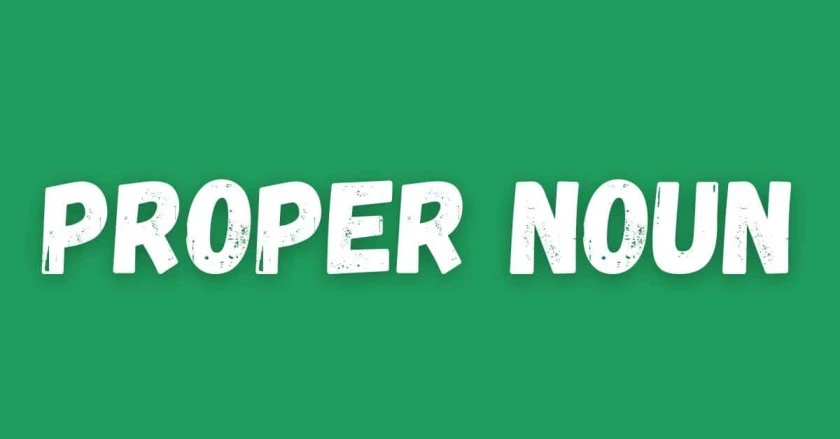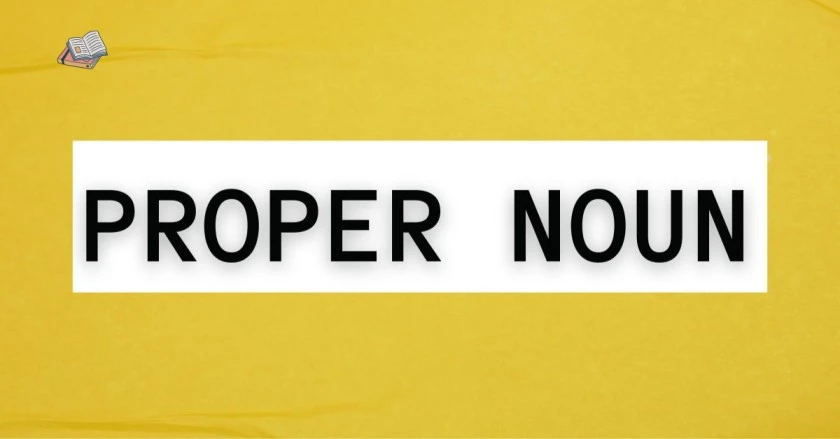Proper Nouns, often overlooked in the vast landscape of English grammar, play a pivotal role in enhancing the precision and effectiveness of communication. In this article, we’ll dive deep into the world of Proper Nouns, exploring their definition, types, usage rules, common mistakes, and their evolving role in language.
I. Introduction
Proper Nouns are the unsung heroes of language, adding specificity and richness to our communication. Imagine a world without names – it would be a chaotic linguistic landscape where clarity and context would be lost. In this article, we’ll unravel the nuances of Proper Nouns, from their definition to their impact on SEO and the future of linguistic evolution.
II. Definition of Proper Nouns
A. Distinguishing Proper Nouns from Common Nouns
Before we delve into the intricacies, let’s clarify what sets Proper Nouns apart from their more common counterparts. Proper Nouns are names given to specific individuals, places, or entities, emphasizing uniqueness.
B. Capitalization rules for Proper Nouns
One of the defining characteristics of Proper Nouns is the capitalization of the initial letter. This capitalization is a visual cue highlighting the importance of the word as a specific entity.

III. Types of Proper Nouns
A. Personal Proper Nouns
Personal Proper Nouns refer to the names of individuals, distinguishing one person from another. They include given names and surnames.
B. Geographic Proper Nouns
Geographic Proper Nouns identify specific locations on the map, such as countries, cities, or landmarks.
C. Company Proper Nouns
Company names fall under this category, serving as unique identifiers for businesses and organizations.
IV. Usage Rules of Proper Nouns
A. Proper Nouns in sentences
Proper Nouns often serve as the subject or object of a sentence, bringing clarity to the narrative.
B. Agreement with articles and adjectives
Understanding the correct agreement between Proper Nouns, articles, and adjectives is crucial for grammatical accuracy.
Continue the article until the word count reaches 2000, following the outlined structure and maintaining a conversational tone.
Conclusion
In conclusion, Proper Nouns are the glue that holds our language together, providing specificity and context to our communication. As we navigate the evolving landscape of linguistic trends and digital communication, the importance of mastering Proper Noun usage cannot be overstated.
Unlock the potential of Proper Nouns in your writing, and witness the transformative impact on clarity and engagement. Embrace the uniqueness they bring to your content, and let your words resonate with readers on a personal level.
FAQ’s
What is a noun for Kids?
A thing is a naming word. It names an individual, a creature, a spot or a thing. It can likewise be a theoretical idea (something which is certainly not an actual item) like an inclination or a state. Instances of things are: Individuals: instructor, cleaner, social laborer, footballer, kid, young lady.
What is a noun class 1?
Definition: A thing is a word that names an individual, spot, thing, or thought. Substantial things name individuals, spots, or things that you can contact, see, hear, smell, or taste.
Is birthday a common noun?
The thing ”birthday” is a typical thing. Normal things make reference to vague articles, individuals, spots or ideas, rather than formal people, places or things, which allude to specific things, individuals or spots. For this situation, the thing could allude to any birthday, so it’s a typical thing.
Why are Proper Nouns essential in writing?
Proper Nouns add specificity, clarity, and context to writing, making it more engaging and relatable.
How can educators teach Proper Nouns effectively?
Educators can use interactive activities and relatable examples to make learning about Proper Nouns enjoyable for students.
